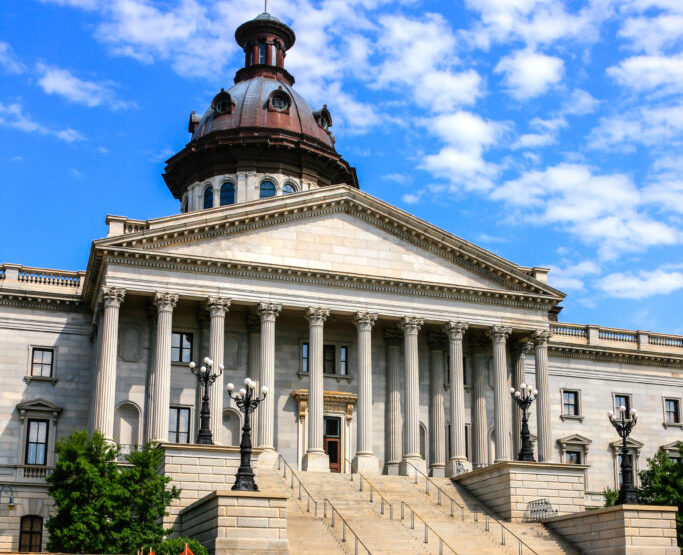South Carolina school-choice voucher bill headed to full Senate Education Committee
(The Center Square) – A voucher bill that would allow South Carolina students to take their state funding with them to private schools will be heard in the state’s full Senate Education Committee…

(The Center Square) – A voucher bill that would allow South Carolina students to take their state funding with them to private schools will be heard in the state’s full Senate Education Committee Wednesday.
The bill, S. 935, will limit the initial number of participants but is estimated to have a $35.7 million impact starting this fall.
The original bill capped the estimated annual impact at $2.9 billion starting in the 2026-27 fiscal year, when the participant cap could be removed, but Majority Leader Shane Massey, R-Edgefield, proposed a subcommittee amendment last week to limit the bill to 15,000 participants that would leave an estimated $113.5 million impact. The vouchers could be used for transportation and Massey also suggested an amendment that would allow students to use the funds to transfer to another public school.
“My thought on that is, if you look at the other states that have done similar-type programs,” Massey said. “In Florida, what we heard was there were like 17,000 and Florida is like four times the size of South Carolina. I don’t think we’re going to get up to that number of students. But if we do … then maybe we come back and re-evaluate it.”
The original bill limited the scope in the first year to 5,000 eligible students from kindergarten to third grade, expanding to 10,000 between kindergarten and fifth grade in 2023-24 and 15,000 between kindergarten and eighth grade in 2024-25 and 20,000 vouchers for K-12 students before the cap is removed the following year.
But a committee amendment would allow all grades K-12 to be eligible for the first 5,000 spots.
“S.935 would provide low-income parents and parents of children with special needs not only a choice in their child’s education, but remarkable flexibility as well,” said Lawson Mansell, Policy Content Manager at Palmetto Promise. “This bill is modeled after successful legislation in Arizona and Florida, and with broad-based support across our state, we’re confident that ESAs will be a reality for South Carolina parents soon.”
The bill is dubbed the “Put Parents in Charge Act” and is sponsored by Sen. Larry Crooms, R-Berkeley, with 19 fellow senators including Massey signed on as co-sponsors.
The corresponding House bill, H. 2976, was introduced a year ago.
Per-pupil state funding from 2019-20 ranged from $5,089 to $11,940, according to South Carolina’s Revenue and Fiscal Affairs Office.
The bill limits eligibility to students from families with income up to 200% of the poverty level. This year, for a family of four, that would be families with an income of $55,500 or less. For a family of five, that cap would be $64,940 in annual income.
Up to 4% of the funds for the education scholarships can be reserved for administration fees for the program with an addition $855,000 set aside in the first year.
“Admin expects to contract with a third-party to administer the program,” the fiscal analysis states. “The agency expects the expenditures will total approximately $2,283,000 in FY 2022-23 and each year thereafter, although this amount may range from $1,833,000 to $2,561,000 based on the scope of third-party services required.”
Palmetto Promise Senior Fellow Oran Smith said he was pleased with much of what the subcommittee was able to accomplish.
“The subcommittee kept the parts of the bill that made the program a true ESA, meaning a parent could choose from a variety of educational services, not just schools,” Smith said. “That was key. The subcommittee also removed the age/grade limit. It now covers K-12, not just K-3rd grade! There is also language in the subcommittee version tying the program to a sustainable source of funding.”
Some concern, however, came over whether the independent private schools would be held to state or national testing standards.
“Rather than allowing independent schools that participate in the program to choose either a nationally norm-referenced test or a state test, the subcommittee version requires the same state assessments administered to public school students,” Smith said, stating Palmetto Promise believes the national requirements are more appropriate. “No other existing ESA program in the country requires the state public school test.”
The bill passed the Senate Education Subcommittee last week by a 3-2 vote with Sen. Mike Fanning, D-Fairfield, tweeting that it will “take $113.5 million directly FROM Local Public Schools & send $ (thru state account) to Private Schools.”
“Kids with Disabilities & these Vouchers?” tweeted Fanning, D-Fairfield. “Yesterday Subcommittee voted 3-2 to give Special Needs students a Voucher BUT allow Private Schools to discriminate against Special Needs students in their decision whether or not to ACCEPT the Voucher.
“Senator Darrell Jackson made a motion stating that Private Schools can NOT deny acceptance of a student based on their Disability. Senator Brad Hutto seconded the motion. The motion failed by a 3-2 vote (voting “for” – Jackson & Hutto; voting “against” – Massey, Talley, & Rice)”



